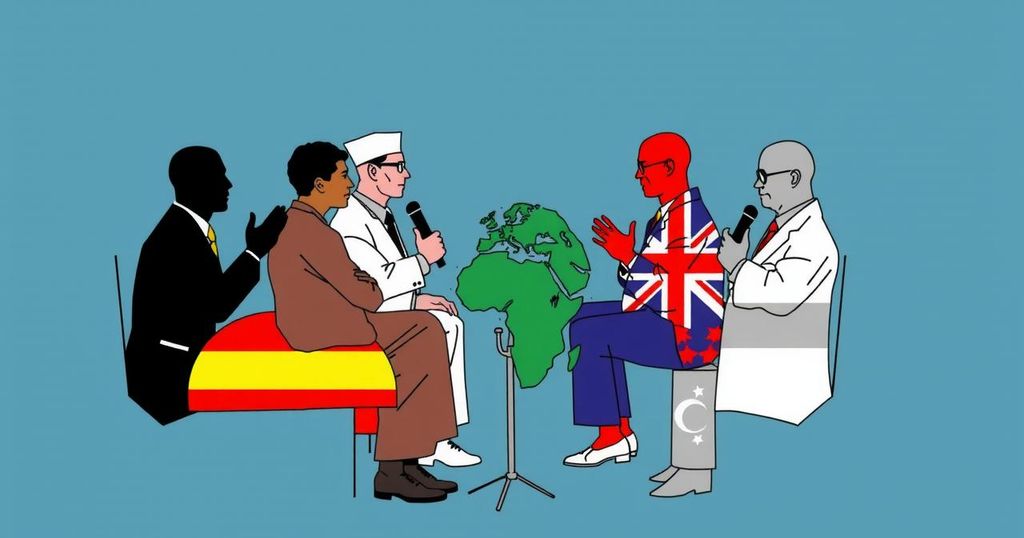The Commonwealth Heads of Government Meeting in Samoa convenes leaders from 56 nations to address climate change and reparations for historical slavery. With a focus on the existential threats posed by climate change to small island states and the ongoing demand for reparations, the summit seeks to facilitate dialogue and explore solutions to these critical issues.
The Commonwealth Heads of Government Meeting in Samoa has brought together leaders from 56 countries to discuss pressing issues, notably climate change and reparations for the transatlantic slave trade. As the leaders convene, they encounter urgent matters concerning rising sea levels that disproportionately affect many Commonwealth nations, especially the small island states. Australian Foreign Minister Penny Wong emphasized the existential threat posed by climate change, which is impacting national security and economic stability in the Pacific region. The assembly will also address the topic of reparations, with several Caribbean and African nations advocating for Britain to take responsibility for its historical involvement in slavery. Although British Prime Minister Keir Starmer has indicated a reluctance to address reparations directly, the Commonwealth meeting represents a vital forum for dialogue on this significant issue. Advocacy groups are actively seeking reparations from former colonial powers, reflecting ongoing racial inequalities that stem from the legacy of slavery. Notably, historical context underscores that from the 15th to the 19th centuries, over 12.5 million Africans were forcibly taken and sold into slavery, with many working under deplorable conditions in the Americas. This summit aims to address these contemporary issues arising from a painful past and seek pathways towards justice and sustainability for vulnerable nations.
The Commonwealth of Nations, a political association of countries mostly comprising nations formerly part of the British Empire, faces significant challenges, particularly related to climate change and historical injustices linked to slavery. Climate change poses dire threats to many of its members, especially smaller island nations that are highly susceptible to rising sea levels and extreme weather. The discussion surrounding reparations for the transatlantic slave trade has gained renewed traction, with countries and advocacy groups pushing for acknowledgment and redress for historical wrongs. The legacy of slavery continues to contribute to systemic racial inequalities, prompting calls for dialogue and action.
The Commonwealth Heads of Government Meeting in Samoa signifies a pivotal moment in addressing crucial global challenges, particularly climate change and the reparations debate. The potential for cooperation and dialogue among member nations on these pressing issues may pave the way for meaningful progress. As consistent advocates call for acknowledgment of historical injustices, the summit represents an opportunity to marry the discussions of past responsibilities with future sustainability efforts, fostering resilience among vulnerable communities affected by climate change and historical slavery.
Original Source: www.voanews.com






